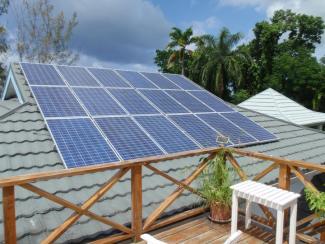Hotels
Dimensions of responsibility

This is promising. Most visitors, however, do not have a clear understanding of what exactly sustainability and responsibility entail.
Many hotels are trying to cash in on the “green” trend and confuse tourists with blurred ideas. For instance, a newly built rustic lodge is called “sustainable” simply because it is made of “natural” materials. It would actually make more environmental sense to use an old building and upgrade it, rather than cutting trees to build a new wooden lodge.
Hotel buildings are not the only thing that matters, moreover. Environmental sustainability depends on several other issues. Some of them are listed here:
- Waste management – is the sewage simply being pumped into the sea? What about garbage?
- Energy – does the facility use renewable sources? Is it energy-efficient?
- Pollution – what chemicals are being utilised for cleaning? Do they harm the environment? Do they have a negative impact on staff health?
- Water management – is the hotel using water sparingly and relying on water harvesting methods? How much water does it use to irrigate the garden?
One huge challenge, when improving a hotel’s sustainability, is to cover the initial costs of installing new, energy-efficient equipment and other technologies that save resources. The required capital expenditure is beyond the means of many small businesses.
Moreover, operating sustainably requires constant monitoring and measuring of resource use (electricity, water, chemicals, waste production et cetera). This can prove particularly challenging in countries with low literacy levels. Even basic literacy can often not be taken for granted.
It takes commitment from the management to provide the needed training in order to raise awareness. Moreover, the management must provide the tools for the staff to implement the necessary strategies.
Given that human resources are vital, staffing policies are important too. To run a sustainable hotel, the management has to ensure fair terms and conditions for employees. If they are to work well, they must be paid a fair wage. Accordingly, the consumer prices for sustainably managed accommodation must be higher than at cost-minimising, conventional resorts. (sa)











